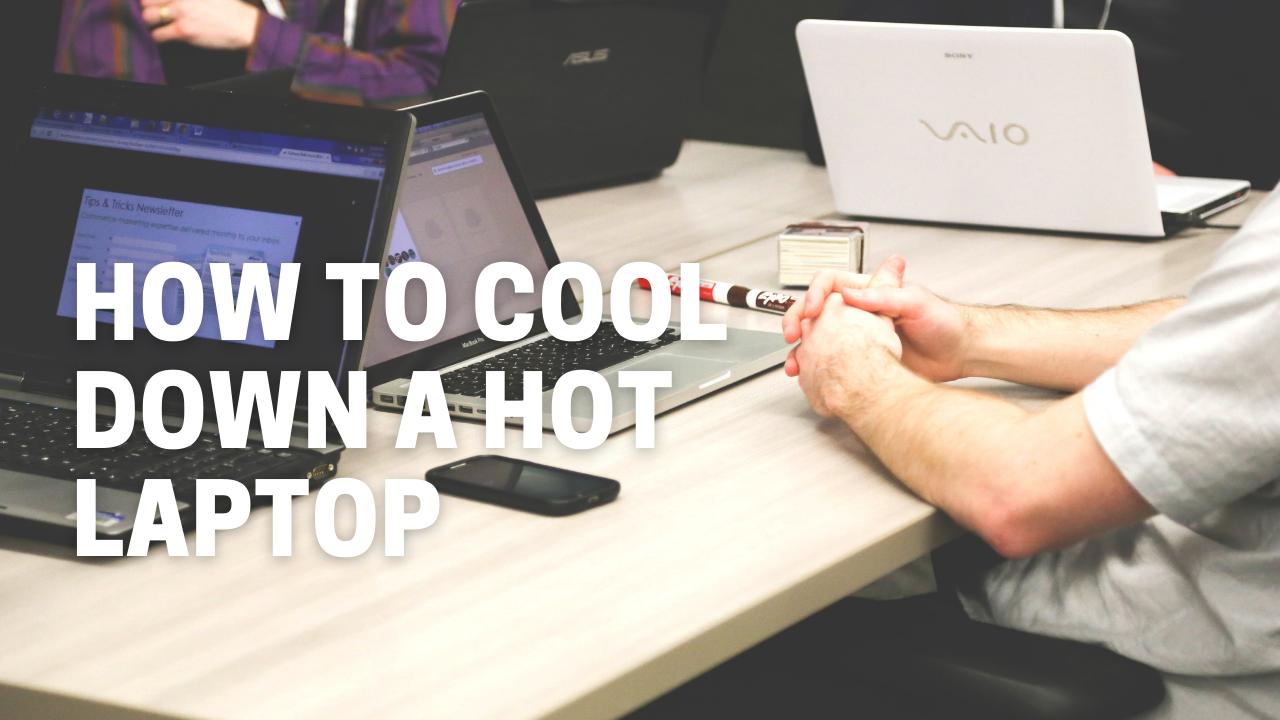
Does your laptop feel like a mini furnace on your lap? Excessive heat is a common problem for laptops, and it can lead to a variety of issues, including performance degradation, unexpected shutdowns, and even permanent damage to internal components. If your laptop is running hot, don't panic! Here are eight effective tips to cool it down and keep it running smoothly.
1. Identify the Culprit: Understanding the Root Cause of Overheating
Before applying cooling solutions, it's crucial to understand why your laptop is overheating. Here are some common culprits:
Dust Buildup: Over time, dust accumulates inside the laptop's vents and cooling system, hindering airflow and causing overheating.
Demanding Tasks: Running resource-intensive programs like video editing or gaming can push your laptop's processor and graphics card to their limits, generating significant heat.
Poor Ventilation: Using your laptop on soft surfaces like blankets or pillows can block vents and restrict airflow.
Faulty Cooling Fan: Like any mechanical component, the laptop's cooling fan can malfunction or wear out over time, leading to inadequate heat dissipation.
2. Give Your Laptop Some Breathing Room: Ensure Proper Ventilation
Find a Firm Surface: Always use your laptop on a flat, hard surface like a desk or table to ensure proper airflow through the vents. Avoid using it on soft surfaces like beds or couches.
Clear Obstructions: Keep the laptop's ventilation grills free from dust, dirt, or debris. You can use compressed air to gently blow out any visible dust buildup.
3. The Power of Cleanliness: Regularly Clean Your Laptop's Interior (for the Tech-Savvy)
If you're comfortable opening your laptop, consider a more thorough cleaning to remove internal dust buildup. Important Note: Attempt this step only if you're confident disassembling and reassembling electronic devices. For others, seeking professional help from a best laptop repairing institute in Delhi is recommended.
Here's a general guideline (always consult your laptop's manual for specific instructions):
Power down your laptop and disconnect it from the power source and any peripherals.
Remove the battery (if possible).
Use compressed air to carefully blow out dust from the vents, keyboard, and internal components.
Caution: Avoid using a vacuum cleaner, as it can damage delicate components.
4. Keep Your Cool with a Laptop Cooling Pad
A laptop cooling pad is an external device that sits beneath your laptop and uses built-in fans to draw cool air through the vents and disperse hot air. This can be particularly helpful if you frequently use your laptop on soft surfaces or for demanding tasks.
5. Tame the Resource Hogs: Optimize Your Software
Close Unnecessary Programs: Background applications can consume processing power and contribute to heat generation. Close any programs you're not actively using.
Adjust Power Settings: Most laptops offer power management options that prioritize battery life or performance. Consider switching to a power-saving mode when you don't need maximum power output.
Update Your Software: Outdated software and drivers can sometimes lead to performance issues and overheating. Ensure your operating system and device drivers are updated to the latest versions.
6. Give Your Laptop a Breather: Schedule Regular Breaks
Just like you, your laptop needs occasional breaks! Running demanding tasks for extended periods can lead to overheating. Take regular breaks to allow your laptop to cool down. You can also power it down completely when you're not using it for an extended period.
7. Monitor Your Laptop's Temperature:
Several free software programs can monitor your laptop's internal temperature. This allows you to identify potential overheating issues before they cause problems.
8. When Professional Help is Necessary:
If you've tried these tips and your laptop is still running excessively hot, it might be time to seek professional help. A qualified technician at a "laptop repairing institute in Delhi" can diagnose the underlying cause of the overheating and recommend appropriate solutions.
Invest in Your Laptop's Wellbeing:
By following these tips and addressing overheating issues promptly, you can extend the lifespan of your laptop and ensure optimal performance. For a comprehensive understanding of laptop repair and potential career opportunities in this field, consider enrolling in a laptop repairing course in Delhi offered by a reputable institute like Hi-Tech Institute.
A Rewarding Career Path Awaits!
Hi-Tech Institute, an ISO and MSME certified institute established in 2004, has trained over 3 lakh students in laptop and mobile repair. The laptop repair industry is booming, with an estimated demand for 10 lakh





Write a comment ...